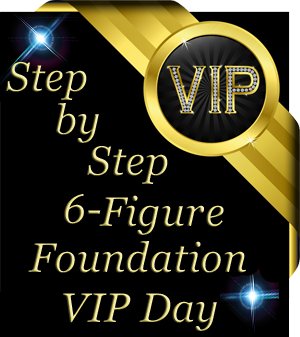Introvert or Extrovert? How to be the Coach you are and Succeed, Part 1
 Do you know if you are an Introvert or an Extrovert? Most people at one time or another have made that determination about themselves (or had it made for them), but you could be in for a surprise.
Do you know if you are an Introvert or an Extrovert? Most people at one time or another have made that determination about themselves (or had it made for them), but you could be in for a surprise.
I know I was surprised. I’d always thought of myself as an extrovert, and the day I discovered I was actually an introvert astonished me, to say the least.
How could I have been so wrong?
It’s easy. Most people think an introvert is someone who is shy, timid, hard to get to know, hates talking to people they don’t know, and is the last person to take charge or lead a group.
I simply don’t fit that profile. In fact, in many instances I’m the opposite of all that. So what is an introvert really, then, and what is an extrovert?
An introvert is a person who is energized by being alone and drained by being around people, and an extrovert is a person who is energized by being around people and often bored and restless being alone.
Introverts are energized by the introspective world of thoughts, ideas and feelings, and generally prefer “deeper” conversations as opposed to “small talk.” They also prefer having a few very close friends, as opposed to extroverts who enjoy a larger circle of acquaintances and friends.
It’s not that introverts don’t like being around people, it’s just that too many people overwhelm them, and they need alone time to recharge afterwards. Often they prefer to simply skip the large gatherings.
There are more extroverts than introverts in the world: about 70-75% are extroverts. However, about 60% of the gifted or those with above average intelligence are introverts.
Here’s the kicker: There is actually a physiological difference between the two. Our brains are wired differently! It’s not something we can change. However, that doesn’t mean we can’t do what coaches do best: look for the strengths and then capitalize on them.
To find out for sure if you are an introvert or an extrovert, be sure and take the quiz here.
Strengths of the Extroverted Coach
There’s no doubt about it, being an extrovert can help you build your coaching business. The more people you come into contact with, the more you’ll be able to spread the word about your coaching. Your large circle of friends is just the beginning.
Going to live seminars, conventions and meetings is the perfect arena for you to mingle with your market, pick up clients, and make more connections. You thrive on the energy of all the people there.
The same goes for live networking with your peers: you shine in a large group. When it’s break-time, you’re always in the thick of things, chatting people up, making friends and finding affiliate partnerships.
Facebook, twitter, on-line chat groups, and on-line forums are wonderful arenas for you to spend your time: connecting, chatting, presenting yourself as the expert you are, and magnetizing your ideal clients to you.
When it comes to joining a platinum program for yourself, go for it – the bigger the better. You’ll get the most benefit out of large platinum’s with 30-50 of your peers in them.
One more note for you extroverts: watch yourself and be careful not to judge the introverts as “anti-social.” They have a lot to contribute, which makes them powerful affiliate partners and well worth using your extroverted nature to connect with.
In fact, be sure and read my next article in two weeks, which is all about the strengths of an introvert. It will help you understand how to connect with them and leverage their strengths alongside your own.
Introverts, your strengths to succeed as a coach are every bit as powerful as the extroverts, but different. Don’t try and be what you’re not. In fact, discovering and leveraging your strengths is so important, I’ve dedicated an entire article just to you.
So be sure to read my next article, part 2 of “Introvert or Extrovert? How to be the Coach you are and Succeed,” because that one will be all about you.








Leave a Reply